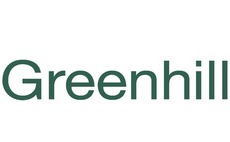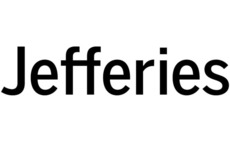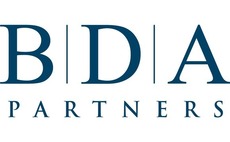
Q&A: iCapital Network's Lawrence Calcano
Launched in 2013 and backed by a string of placement agents, iCapital Network leverages technology to give high net worth investors access to alternatives. CEO Lawrence Calcano discusses the democratization of capital raising
Q: How does the iCapital system function?
A: We have created a technology bridge that connects high-end GPs with the high net worth community. We are B2B, so we are focused on advisors. These could be independent RIAs (registered investment advisors) or people at the large wire-house platforms like Morgan Stanley or UBS. It's an end-to-end service and how much of it you want is a function of where you are: an independent advisor might need access to managers, due diligence services, and the technology infrastructure; a bank probably already has some access, so it is looking for us to process transactions, manage the capital calls and distributions, and handle reporting.
Q: And the GP perspective?
A: Some managers have decided to go after investors in the high net worth channel. For many of them, we will provide full operational and technical infrastructure so that when someone wants to buy a fund they can do it through the iCapital platform and we manage it on their behalf. In effect, they are outsourcing management of the high net worth channel to us. In other cases, GPs look for distribution from us as well.
Q: How big is your business as it stands?
A: One of the impediments high net worth investors have getting access to institutional managers is the minimums are so high. A family with $10-20 million can't write a $5 million check for a single fund but it might be able to write five $100,000 checks and that way build a diversified portfolio. We create vehicles and bundle high net worth investors together, so we look like one big-ticket to the GP. We have crossed $6 billion in assets in across about 130 of those vehicles.
Q: What about capital from larger private banking platforms that have their own vehicles?
A: We manage a lot of feeders for them. We've probably managed 10 for UBS this year. They also have investors who can meet the minimum and go directly into funds. They don't count in our total.
Q: Global buyout firms would like to make better use of retail fundraising channels. What does that mean for iCapital?
A: Some of them have built out distribution teams to educate and create access to their products, but they are realizing that care and feeding of this channel is very different from the institutional channel they support. They have configured their processes to accommodate a small number of very large investors. Suddenly that one investor with a $500 million check becomes 1,000 investors all writing checks, and you must do everything from presenting the fund to managing the capital calls and distributions. Their infrastructure is not built for that kind of investor.
Q: To what extent do you expect the competitive threat to increase?
A: Any large market will see competition. Some firms have entered this market and they define the problem as a technology problem, but that misses what the opportunity is about. It's about being able to provide the full solution – offering access to funds, educating investors on the asset class, distributing where it makes sense, and having a robust technology platform. We always felt it was important to build out the entire chain.
Q: How important is blockchain likely to be for your business?
A: The technology that develops into the most reliable ledger systems available will be integrated into our business. Anything that makes what we do more reliable and more secure for investors is something we will look hard at. We are also trying to make the asset class easy for investors.
Q: Is the capital raising process already fully automated?
A: Subscription documents, managing capital calls and distributions, and how we do fund reporting – a lot of our development is based on automating those operations. It is a huge part of how we spend our technology dollars. Our view is not to simply replace the banks or the independent manual infrastructure, it's to replace it with a completely end-to-end technology solution so we create more scale in this chain. The paper in the system that we deal with is a function of whether our clients are willing to adopt and if so when. We are trying to build better processes in terms of taking certain manual papers and uploading them into our system. Our hope is that over time, clients will recognize that being as automated as possible delivers a better experience.
Q: How international is your business and what are the regulatory implications of this?
A: Of our $6 billion in assets, more than $1 billion is from outside the US, so we are already cross-border, and our international footprint will be expanding in the near future. From a regulatory perspective, we are B2B not B2C, so we work closely with our partners to ensure compliance in terms of the types products we offer and to whom we offer them. There are significant regulatory issues to work through.
Latest News
Asian GPs slow implementation of ESG policies - survey
Asia-based private equity firms are assigning more dedicated resources to environment, social, and governance (ESG) programmes, but policy changes have slowed in the past 12 months, in part due to concerns raised internally and by LPs, according to a...
Singapore fintech start-up LXA gets $10m seed round
New Enterprise Associates (NEA) has led a USD 10m seed round for Singapore’s LXA, a financial technology start-up launched by a former Asia senior executive at The Blackstone Group.
India's InCred announces $60m round, claims unicorn status
Indian non-bank lender InCred Financial Services said it has received INR 5bn (USD 60m) at a valuation of at least USD 1bn from unnamed investors including “a global private equity fund.”
Insight leads $50m round for Australia's Roller
Insight Partners has led a USD 50m round for Australia’s Roller, a venue management software provider specializing in family fun parks.







